Certified Translations: Everything You Need for Legal and Immigration Documents

Summary
When dealing with legal or immigration documents, certified translations are crucial to ensure that your paperwork is both accurate and legally accepted. Whether you’re dealing with USCIS paperwork or preparing for a court case, certified translations act as a guarantee that your documents meet all necessary legal and official requirements. This blog will explain what certified translations are, when you need them, how to choose a certified translator, and why these translations are essential for a smooth legal and immigration process.
1. What Are Certified Translations and Why Do You Need One?
A certified translation is an official translation of a document where the translator confirms the accuracy and completeness of the translation. The translator provides a statement of accuracy, which attests that the translation is true to the original document and includes their qualifications. Sometimes, especially for USCIS approved translations, a notary’s seal may also be required.
Key Parts of Certified Translations:
- Translator’s Statement of Accuracy: The translator includes a formal statement confirming that the translation is accurate to the best of their ability.
- Contact Information: The translator’s name, address, phone number, and email address are provided to ensure the authenticity of the translation.
- Notarization (if needed): In certain cases, a notary public may need to notarize the translation to provide an additional layer of verification. This is often required by USCIS and other legal bodies.
Why Certified Translations Matter:
Certified translations are critical for immigration processes, legal matters, and official business dealings. A small error in translation can result in delays or rejections, especially for USCIS petitions or court documents. The certification assures authorities that the translation is accurate, complete, and legally binding.
Certified translations provide:
- Legality and Acceptance: Certified translations are accepted by authorities such as USCIS, courts, and regulatory agencies.
- Accuracy and Precision: Certified translators guarantee that the translation is a true representation of the original document.
- Professionalism: Certified translations offer peace of mind, knowing that the translation is handled by a qualified professional who adheres to ethical standards.
2. When Do You Need Certified Translations?
There are specific situations where certified translations are necessary. Below are some examples of when to seek certified translation services:
2.1 Immigration Papers & USCIS Filings
One of the most common scenarios that require certified translations is for immigration purposes. USCIS (U.S. Citizenship and Immigration Services) mandates that all foreign-language documents submitted as part of a petition, such as for a visa, green card, or citizenship, must be accompanied by a certified translation.
Documents that typically require certified translation for USCIS include:
- Birth certificates – proving your identity.
- Marriage certificates – validating your marital status.
- Divorce decrees – confirming that you’re free to marry.
- School transcripts & diplomas – verifying your education.
- Police clearances – ensuring a background check.
- Passport copies – validating citizenship.
If the translation isn’t certified, USCIS may reject the entire application, leading to delays, requests for additional documents, and potentially missed deadlines. Certified translations ensure that your immigration documents are processed without unnecessary setbacks.
2.2 Legal Documents
In legal contexts, certified translations are required for documents that need to be presented in a court of law or to legal authorities. Certified translations ensure that the translated document is accurate and admissible in legal proceedings. Some common legal documents requiring certified translations include:
- Contracts – ensuring international deals are enforceable.
- Court filings – such as motions, complaints, and judgments.
- Wills and probate files – to ensure the proper execution of estate matters.
- Intellectual property filings – such as patents or trademarks for international jurisdictions.
Why Certified Translations Matter in Legal Contexts:
A single translation mistake can lead to misunderstandings, legal disputes, or even contract violations. Certified translations provide assurance that the original meaning is preserved, making them a vital component of any legal process.
2.3 Business and Official Records
Certified translations are not just important for individuals and legal cases—they are also essential for businesses dealing with international markets. Companies that operate globally need certified translations for various types of documents, including:
- Product manuals and safety data sheets – required by agencies like the FDA or CE for product approval.
- Financial statements – necessary for foreign tax filings and audits.
- Marketing materials – such as brochures or advertisements that need to adhere to local advertising laws.
- Supply chain contracts – ensuring both parties understand their obligations.
Certified translations for business documents help ensure compliance with local regulations and prevent errors that could lead to financial penalties, product recalls, or damaged business relationships.
3. How to Choose the Right Certified Translator
When selecting a certified translator for your project, it’s essential to ensure that they meet all the necessary qualifications. Here are a few factors to consider when hiring a certified translation service:
3.1 Certification and Skills
- Credentials: Look for translators who are certified by professional bodies like the American Translators Association (ATA) or hold equivalent qualifications. These certifications ensure the translator has undergone rigorous testing and has proven expertise in their field.
- Language Proficiency: Ensure the translator is fluent in both the source and target languages, especially when dealing with technical, legal, or medical documents.
- Ongoing Training: Certified translators should be engaged in continuing education and professional development to stay current with industry best practices.
3.2 Know-Your-Field
For certified translations in specific areas, such as law, medicine, or business, you need a translator with specialized knowledge in that field. For example:
- Legal Documents: Ensure the translator is experienced in translating legal documents, including contracts, court orders, and affidavits.
- Medical Records: If you need medical translations, hire a translator with knowledge of medical terminology to ensure accuracy.
- Technical Documents: If you’re translating technical documents, such as product manuals or engineering drawings, ensure the translator understands the technical jargon.
3.3 Pricing and Turnaround Time
- Cost Structure: Understand how the translator charges—typically per word, per page, or by the hour. Ensure you get a clear breakdown of all costs, including any additional fees for notarization or expedited services.
- Turnaround Time: Ask about the standard turnaround time for the type of document you need translated. If you need your translation quickly, inquire about rush services and additional charges.
3.4 Reputation
- Reviews and Testimonials: Look for reviews on reputable sites such as Google Reviews or Trustpilot. Positive feedback from previous clients can give you confidence in the translator’s reliability and quality.
- Samples of Work: Request sample translations or case studies of similar documents the translator has worked on, especially if you need a USCIS approved translation.
By following these guidelines, you can choose a translator who is qualified, experienced, and reliable.
4. Why Certified Translations Matter for Legal and Immigration Documents
Certified translations ensure that your documents are accurate, legally accepted, and culturally appropriate. They play a crucial role in preventing delays and errors in legal and immigration processes. Here’s why certified translations are so important for legal and immigration matters:
1. Accuracy and Legal Safety
Certified translations are backed by the translator’s affirmation of accuracy. This gives legal and immigration authorities confidence that the translation is a true reflection of the original document. Accuracy is critical because even minor errors in translation can change the meaning of legal terms, leading to significant complications.
2. Avoiding Delays or Rejections
Submitting an uncertified translation can result in delays or rejection of your application, whether it’s for immigration, court cases, or business dealings. Agencies like USCIS or courts require certified translations to ensure the documents are legally valid and accurate.
3. Professional Trust
Certified translations build trust with agencies, courts, and businesses. The certification guarantees that the translator is qualified and that the translation has been reviewed for accuracy. This trust is essential when dealing with sensitive or high-stakes documents.
4. Meeting Exact Rules
Many institutions, including USCIS, have strict guidelines regarding translations. A certified translation meets those requirements, ensuring that your documents are accepted without complications.
Conclusion
Certified translations are essential when dealing with immigration, legal, and business documents. Whether you need USCIS approved translations for a visa or certified translations for a court case, choosing the right certified translator is crucial for ensuring accuracy, legal compliance, and peace of mind. By understanding when certified translations are necessary and how to select a qualified translator, you can avoid delays, costly mistakes, and legal complications.
Daniel Brooks is a New York City-based writer and content strategist with a deep curiosity for how language shapes connection across cultures. With over ten years of experience crafting digital content for global audiences, Daniel brings a thoughtful and practical voice to the Connected Translations blog.


